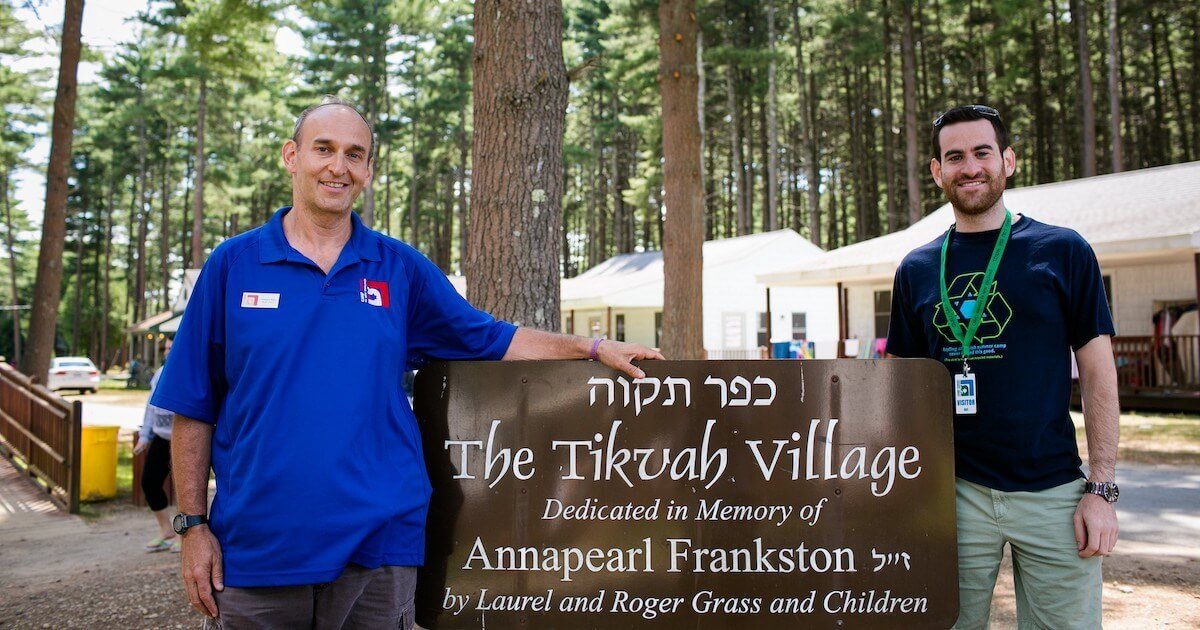Original Article Published on The Jerusalem Post
Three special needs students came to Israel last week to share a message of hope and support for Israel.
Simone Rosenzweig reports: For three extraordinary young men who visited Israel from February 12 through 24, the fact that others were scared to visit now only fueled their desire to come.
The young men are all members of Camp Ramah in New England’s Tikvah Vocational Program, a project designed specifically for developmentally disabled young adults. During the summer, they spend eight weeks at Camp Ramah, where they learn vocational and independent living skills and focus on self-image, social functioning, and Jewish communal membership.
The three were accompanied by the Director of Camp Ramah in New England’s Tikvah Program, Howard Blas, who was also the trip’s organizer.
During a lunch break in Jerusalem’s Old City, Blas explained that this year’s trip is a continuation of a program that first began about 15 years ago. During that first incarnation, the Tikvah Program took its special needs campers on seven trips to Israel over 10 years. The Tikvah Program’s Israel Trip ended when its directors, Herb and Barbara Greenberg, made aliya to Ra’anana four years ago.
Blas recalled that when he took over as head of the Ramah New England’s Tikvah Program three years ago, reinstating the Israel trip became a top priority. Neither the current Palestinian conflict nor the threat of war with Iraq could derail Blas’s plan.
“I’d been thinking of bringing back the trip since I took over. Maybe any sensible person would postpone it, but I really wanted to bring them now,” Blas explained. And so, with the help of Camp Ramah’s Israel Program, Blas put his plan into action.
“Part of the decision was to make the trip precisely now, to make it symbolic. There are high schools backing out, and even Ramah had to cut back on its Israel programs because people are scared to come, but here we are with a special needs group,” Blas explained. “Really, it’s bravo, all the credit to the parents. Even people they know in their communities don’t know why anyone would come to Israel now. I was worried that parents would call and say ‘We’re out of here, our child isn’t going.’ I was checking my phone and e-mail every day, expecting cancellations but in the end they felt it was important and allowed their sons to come.”
In the days proceeding the trip, one mother sent Blas almost daily warnings from the United States’ State Department regarding travel to Israel, but she still allowed her son to come. “She just wanted me to be aware of the situation,” Blas explained. To keep parents abreast of the trip’s progress, Blas and the Ramah Israel staff sent them daily e-mail updates, complete with digital pictures.
Although this year there were more staff members than Tikvah campers on the trip (in addition to Blas, the group included tour educator Dvora Greenberg, counselor Maya Freedman, an armed guard, and a bus driver), Blas hopes they will be able to build on this year’s success and bring more campers next year. Despite their friends’ doubts, this year’s group is already eager to sign up again for next year.
In between bites of bagel sandwiches, the Tikvah program participants eagerly explained their reasons for coming and the reactions they received when they announced their plans.
Jeremy Jacobson, a 19-year-old participant from the Washington, DC area, said, “My whole family is jealous that I got to come. I have a really Zionist family. My brother organizes pro-Israel rallies at the University of Michigan. Ever since my first trip to Israel (for Passover 2000) I wanted to come back, and I followed through on it. In the United States you don’t find people in the malls. Terrorism has conquered people. Me, Jason and the other people on this trip are scared, but we don’t let it stop us from coming here. If we want to have fun, we’re not going to let terrorism stop us.”
The trip is Jason Belkin’s first. The 20-year-old from Westchester, NY said, “My parents weren’t as in favor as I was, and even my teachers thought I was crazy for coming at this time.”
But the incredulity he faced only made Belkin more excited about coming and filled him with a sense of purpose. He decided to photograph everyone and everything he could in order to be able to show those who questioned his plans what life here is really like.
“When I get home, of course I will speak about my trip,” he said. “People will be asking questions left and right. I want to tell them that the media lies and this area is really quite safe. I don’t even know which country is safer now, America or Israel.”
Belkin’s shutterbug tendencies influenced Jacobson as well. “I already have five rolls of film to show to my class and my family. Maybe I’ll even bring them to camp and to my Hebrew school. The rabbi in my synagogue may even have me speak about my experience in Israel.”
In addition to touring and sightseeing, the trip included a dinner with many of the Israelis who came to Camp Ramah as delegates last summer. Belkin had spent the summer working closely with an Israeli carpenter, who paid him a surprise visit at the dinner.
When rain cancelled the group’s planned trip to Latrun one Friday, the young men stopped by Jerusalem’s Shaare Zedek Hospital instead. At the hospital, they blew up close to 50 balloons, attached ribbons to them, and distributed them to patients in the pediatric and geriatric wards.
Jacobson noted that the patients, “thanked us because they were very thrilled to have someone give them a balloon. It made me feel very good inside. It was a great way to start off Shabbat. The reactions I saw were like ‘wow.’ It was a very powerful moment for me.”
In addition to questioning some of the young patients and their parents about the political situation, the Tikvah Program visitors began to photograph some of the hospital’s empty beds in order to show friends back home that the hospitals are not constantly packed with terror victims and that Jerusalem is not as dangerous as they imagine.
All three Tikvah Program visitors hope to speak about the trip at camp this summer and use their numerous pictures to encourage others to come.
“These guys will go back as delegates and tell people what’s going on here,” Blas explained. Jacobson added, “After I leave, I don’t want to stop coming back because I love this place.”



